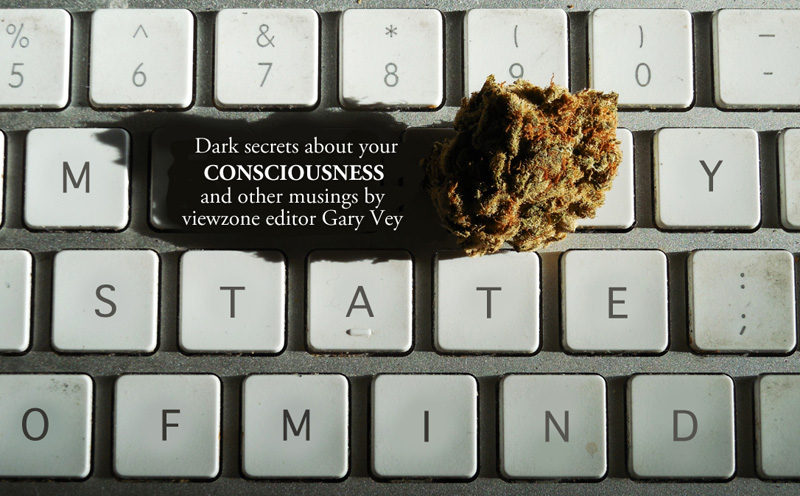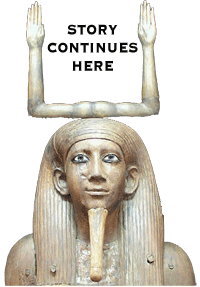
"The intellect has little to do on the road to discovery. There comes a leap in consciousness, call it intuition or what you will, and the solution comes to you and you don't know how or why." -- Albert Einstein
Consciousness is not necessary for Learning
You might think that consciousness is necessary for learning. I did too. I don't mean the way that worms in a petri dish "learn" to avoid a shock by swimming to a safe zone. I mean real learning, like when you crammed your brains for an oral exam the next day or studied for your driver's license.
Repeated studies have shown that you are more likely to learn and retain more facts if you got a good night's sleep than if you stayed up doing an all-nighter. Presumably this is because it is in the unconscious where the interconnections of ideas take place. The new information becomes integrated with the old. This is where learning happens.
According to current psychology:
"...either conscious or unconscious learning is primarily a combination of mental processes, referred to as a knowledge acquisition process, bringing memories into the mind, forming associations, retaining, and using them. A permanent change in mental associations, in long-term memory, or a potential change in human behavior is considered to be learning."
[source]
So consciousness in this case is a kind of input terminal where we await the reaction of unconscious associations and interpretations and then incorporate this new association in our narrative of reality.
We say it (i.e. the consciousness acknowledges the new association as valid) and make it so (it becomes part of the new reality narrative).
OK. Maybe I lost you. Psychologists call it implicit learning and some excellent examples are given here. I'll quote one for you.
|
"An example comes from the work of Arthur Reber, who studied implicit learning over a period of decades. In a 1967 experiment, Reber showed subjects a set of letter strings (such as TSXS, TSSXXVPS, and PVV) generated using a hidden rule. Soon the subjects were able to judge whether new letter strings fit the rule or not. They could do this despite being unable to specify the rule. This is what people commonly call intuition, or knowledge from an unknown source. The subjects "knew" whether a new letter string fit the rule, but they did not know how they knew. Reber carried out many such demonstrations. He used different procedures to rule out alternative explanations. In the end, he concluded that learning typically begins with unconscious processes. Brain-scanning research bears this out. For example, the anterior cingulate gyrus, an area crucial to executive control ("willpower") and planned activity, shows different responses to wins and losses in gambling before a person is conscious of them (Gehring & Wiloughby, 2002). Reber (1993) argued that each individual act of learning mimics our species history. "Consciousness is a late arrival on the evolutionary scene," he pointed out. "Sophisticated unconscious perceptual and cognitive functions preceded its emergence by a considerable margin." Similarly, in the individual act of learning, consciousness is a late arrival, following unconscious perceptual and cognitive functions that first detect a pattern. [emphasis mine] |
A different kind of learning happens when an athlete performs or a pianist executes a long and complex piece. During the actual performance, the performer is best not to consciously think about the multiple mental processes going on. They all happen behind the curtain of unconsciousness and the consciousness of the artist or athlete becomes the witness.
A more common example is driving a car. Remember how when you first got behind the wheel every twist in the road required conscious attention and perhaps the "voice" of your instructor (real or imagined) to keep you safe? Now you can likely drive automatically (unconsciously) and text while worrying about something else.
OK. Enough for learning. It's also behind the unconscious curtain and it functions pretty well without consciousness being involved. I don't need to remind you that brainwashing, mind control and hypnosis utilize this unconscious learning process to change behavior.
Next up...
Judgements and Decisions do not require consciousness
Does our consciousness actively participate in the decisions and judgements we make? Our morality and personality can be thought of as our pattern of reaction to certain situations. These judgements and decisions can be life threatening (should I walk across that dilapidated bridge?) or moral (no one is around, should I steal this piece of cheese?).
We like to think that our ability to make moral judgements and important life decisions (or really any decision) is in the realm of our consciousness. After all, that's what we mean when we imply that we have free will. But psychologists and neurologists have recently come to realize that this appears to be contradicted by fact.
Jaynes (circa the mid-70s) referenced a good study that is often quoted. In this experiment, subjects were asked to solve a word problem that required them to make a judgement and then report their answer. The experimenters divided the experiment into four parts: 1:the introduction of the rules (when I say a word, you say something that is made from it); 2: reciting the target word ("tree"); 3: the processing of the judgement (thinking of things made from trees); and 4: the subject would report the answer ("a door").
What happened is that subjects reported they had the answer as soon as they heard the target word. There was no #3 (H. J. Watt). The decisions and judgements were made almost instantaneously in the unconscious with no effort of consciousness. But I have come across an even more current version of the experiment.
Recent studies with minute changes in pupil size have linked these changes to the degree of mental effort being carried out by our brain. It's a kind of meter that tells you the CPU activity of your brain. I write all about it here.
The important fact here is that when subjects were given a decision to make, their pupils dilated to indicate that their unconscious was thinking hard about it. But then the pupils would suddenly narrow which indicated that a decision had been made. The problem was that this happened well before (well, in seconds anyway) the subject was consciously aware of it. Often the subject did not know ahead of time how they would decide. Typically, the decision would suddenly arrive into consciousness followed by a kind of verbal logic to explain the position (instead of the other way around).
So decisions and judgements are conducted in the unconscious realm and reported to consciousness.
In this same study it was noted that if the decision conflicted with the long held beliefs of the subject, the pupil would vacillate in size slightly if they were asked to recite their decision, indicating that the unconscious was still busy trying to form new associations and accommodate the new narrative.
This is nothing new. Carl Jung developed the word association test back in the mid-20th Century to detect hidden thinking that was going on in the unconscious. By giving a specific word from a carefully designed list, Jung would ask patients with mental problems to say the first word that came into their consciousness. It was not so much the response that issued from the patient as the length of time that it took to reply that was significant.
Jung theorized that the unconscious mind had made an association almost instantly but, because the unconscious was afraid to reveal its true motives and thought processes relevant to the mental problem, an alternate word would be substituted, requiring a delay in the response. The patient would be unaware of this process and would respond as soon as the word came to their consciousness. Words showing a longer response time became a literal clue to the underlying problem affecting the patient.
The point here is that it all takes place under our consciousness and the results of unconscious decisions, judgements, problem solving and other mental functions are revealed to us after the thinking has taken place.
As Jaynes put it, "One does one's thinking before one knows what one is to think about."
But what about moral judgements? Certainly they are part of consciousness and free-will... well, have a look at this study: Magnets Muck Up Your Brain's Moral Compass in which the moral judgements of subjects were dramatically changed (for the worse) by disabling a part of the brain with a strong magnet! [please take note this was the Right Temporal area... which will be more significant later in this story.]
It's a bit off topic but I wonder what is the affect of electromagnetic waves from cellphones, whose antennae are held against this part of the brain? Is this modifying our moral judgement? Just wondering...
Whew! Are you starting to see where this is going? Next:
Consciousness is not necessary for Problem Solving
(later... it is raining and my neuropathy always seems more painful. Some more medicine and I will be back in the chair at the keyboard. Thanks for some encouraging e-mails. Glad to know I have some readers with excellent minds and curiosity. Please comment when you can. Thanks.)
